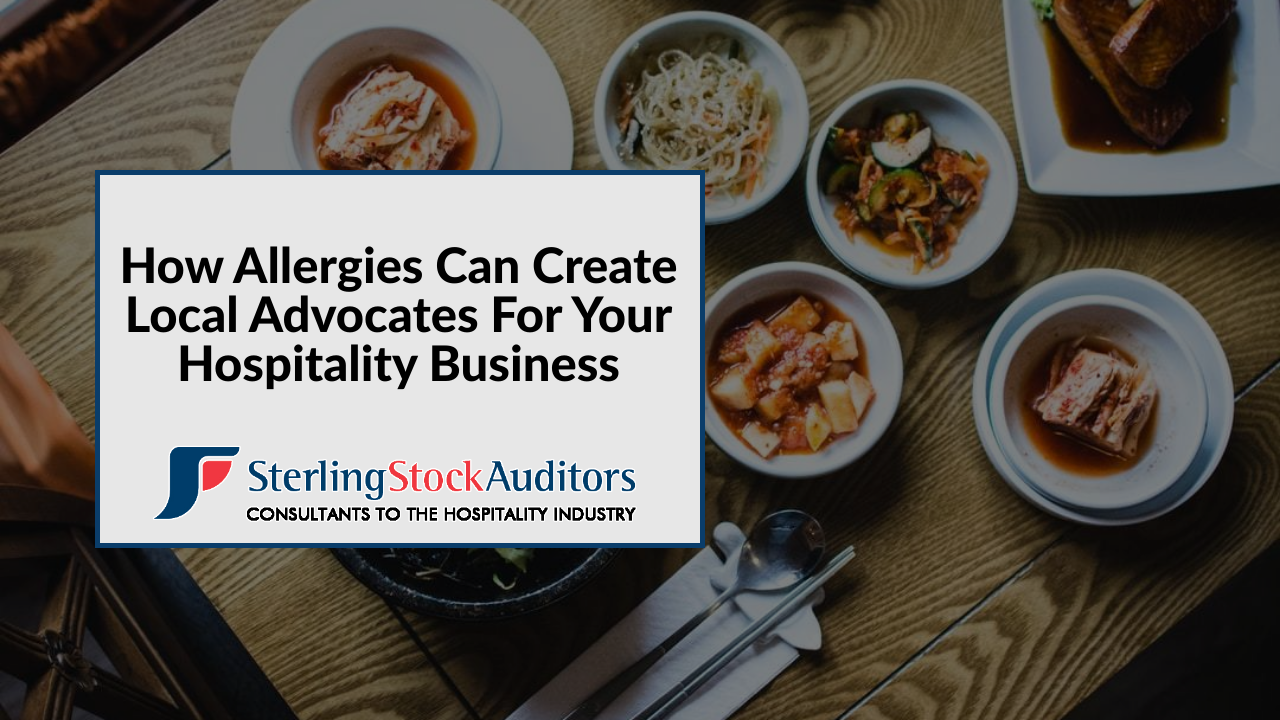
Today I want to talk to you about how allergies can create local advocates for your hospitality business.
We’ve probably all got friends who are vegan, they might have a seafood allergy, they might have a gluten allergy – how do we know this?
They don’t wear a badge.
We know this because they’ve told us.
They might be coming around to your house and they’ve told you so you know you can prepare a meal appropriately.
You might go out to a venue with them and notice when they order that they can and can’t have certain things.
You might have had the unfortunate experience that you’ve gone out to a venue with them, you’ve booked it and you’ve got there and there’s nothing really suitable for them to eat because of their particular allergies.
Now all these people, they have a support network of people with similar allergies, they talk to each other, it might be through a facebook group say for a gluten-free diet, it might be a national one, it might be a local one, it might be a charity that specialises in their particular medical problem.
But they all look to each other for support.
In groups like these they will be asking questions like;
Where is a good place to go in this particular city or that particular town or that particular village, that will cater to these particular allergy needs?
So if you embrace these allergies, then they will get to know and they will pass it on for you, they will be doing the marketing.
Now the 1st October 2021 sees the introduction of Natasha’s law, whilst this is aimed at the pre-packaged meal market, where they now have to list the allergens, it is expected that hospitality businesses that provide food generally will embrace this.
It will be best practice to start to embrace elements of this law, because I’m sure that somewhere down the line it will be passed on to all restaurants, pubs, hotels etc that are preparing meals on the premises.
You need to get your staff trained so they know what’s in it and it’s a case of with the meals, when you spec the meals with the chef that it’s made the same way every time, there’s no going off piste – you haven’t got this particular ingredient so substitute without knowing that will be difficult.
One of the things I see a great deal when I’m doing a stock take for food is in the stores you will see, for example, you see normal pasta, then you see gluten-free pasta, you might see mayonnaise and you see a vegan mayonnaise.
Now Michael Tinkster in his Hospitality Mavericks Podcast episode 120 (listen here), was talking to the founder of Chowbunch, Azher Rubbani about dark kitchens, and what Azher said was he doesn’t stock a normal version of mayonnaise and a vegan version of mayonnaise, he looks at both, if the taste is right he will only stock the vegan.
Vegans won’t have ordinary mayonnaise but most people that will have ordinary mayonnaise will go vegan, so the idea is you’re not doubling up on anything, just try and keep one ingredient that you usually use across several dishes that caters for both markets.
So embrace allergies and those with allergies will become advocates for your hospitality business, singing your praises to their friends and increasing your customer base.

